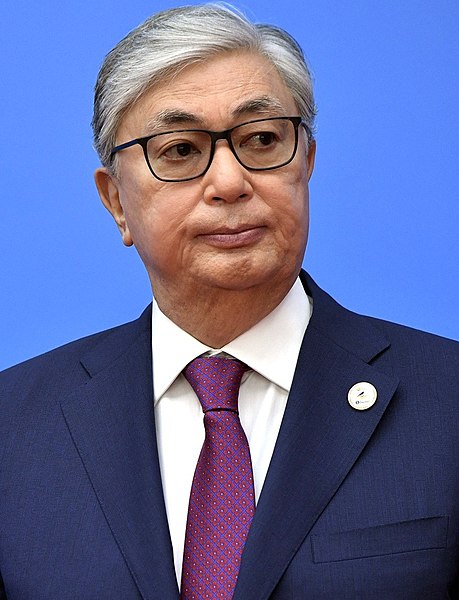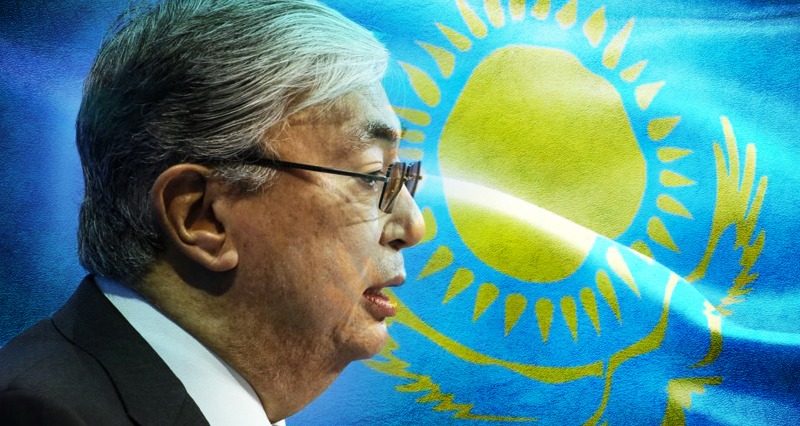On June 9, Kazakhstan has its presidential election. While elections were scheduled to take place in 2020, the interim president of the country, Kasym-Zhomart Tokayev, decided to begin the process ahead of time.
According to expert estimates, although Tokayev will win the election, it will only be the beginning of a difficult transition period. UWI explores what lies ahead for the head of Kazakhstan, the chances of a scandal-free transition and how political alignments might shift.
Forecasts
Seven candidates from diverse political positions, including centrists, liberals, rightists, communists, are contending for the position.
Kassym-Jomart Tokayev is the current successor of longtime leader Nursultan Nazarbayev– like his predecessor, he is a centrist in both domestic and foreign policy, is a centrist. Behind him is the support of the ruling Nur Otan party. Tokayev, like Nazarbayev before him, is trying to find balance in linguistic, religious and social issues.

Wikipedia
The novelty of the upcoming elections (not only in Kazakhstan but also in Central Asia) is that a female candidate has entered the presidential race for the first time, Asem Yespayeva. She represents the liberal Democratic Party Ak Zhol.
The left wing is represented by a candidate from the Communist Party of Kazakhstan, Jambyl Ahmetbekov.
Another important contender is the open oppositionist Amirjan Qosanov. His chances in the current elections are minimal – for now, he fulfills a role by bringing diversity to the political palette, but in the future, he could play a role in promoting globalist interests in the country.
Current outcome predictions are strongly in favor of Tokayev:
Tokayev – 72.7%
Qosanov – 7.9%
Yespayeva – 5.4%
Ahmetbekov – 4.2%
Taspikhov – 3.5%
Rakhimbekov – 3.2%
Tugel – 3.1%
Problems
In Kazakhstan, the demand for change and social justice is growing, while a left-wing social agenda becomes increasingly relevant… at the same time, the situation has created fertile ground for the growth of national populism. Because of this, the participants mainly focus on ideas of social justice, the fight against corruption and wage increases.
One difference in the contending programs is in the role of “Kazakhstanization” (at least three candidates openly support the priority of the Kazakh language – for example, Qosanov speaks about the priority of Kazakh as a “unifying factor”). On one hand, this position strengthens the people, but on the other – it can lead to discrimination of minority groups (from neighboring states, in particular, Russian-speaking). One precedent is Ukraine where a law was passed curbing the use of minority languages, a decision which was condemned at the European level.
Another weak point in the candidates’ programs is the religious issue. The topic is hardly ever broached despite serious problems from radicals, some of which have even gone to Syria to fight for ISIS. In the long run, ignoring the question could be extremely dangerous.
Another unsolved problem is the ongoing transition to private healthcare. A reform of the health insurance system will begin its second phase in 2020. Most of the candidates have refrained from discussing the topic, despite that privatizing the healthcare system could leave a large amount of the population without access. While candidates promise to solve the problem in an abstract sense, few concrete solutions have been proposed.

Flickr
Tokayev: a calm transition?
Tokayev promises to fight corruption, one of the country’s central problems.
Political transition is a long and involved matter, and there is always a certain amount of unpredictability; large reforms are risky even in politically calm countries. The future of Kazakhstan (as well as solving social problems in the future) depends on the stability of the political system, the cohesion of the elites and general society, the state of the economy and social security.
Meanwhile, experts say, Nazarbayev, despite retiring, functionally remains in power: he remains head of the Security Council, the leader of the ruling party and holds the main threads in the management of the country’s domestic and foreign policy. The main signal Nazarbayev gave upon resigning was that the country would continue to follow the course he laid out.
Geopolitics
Kazakhstan, in spite of its problems, has made serious economic advances, and become one of the strongest players in Eurasia. In many ways, this is a result of Nazarbayev’s merit.
As for foreign policy, Tokayev’s task is to confirm the main vectors of Kazakhstan’s foreign policy and maintain a balance in the Eurasian playing field. Given the consistent transition of power, Tokayev will likely continue to steer towards Eurasian integration, maintain neighborly relations with regional players and cooperate with China, Russia, while doing business with the US and Europe. Kazakhstan’s role is to maintain geopolitical balance with a multi-vector policy.
The early presidential elections should finalize the political system for the transitional period. This will be a critical stage in the transition to the post-Nazarbayev era.









Leave a Reply